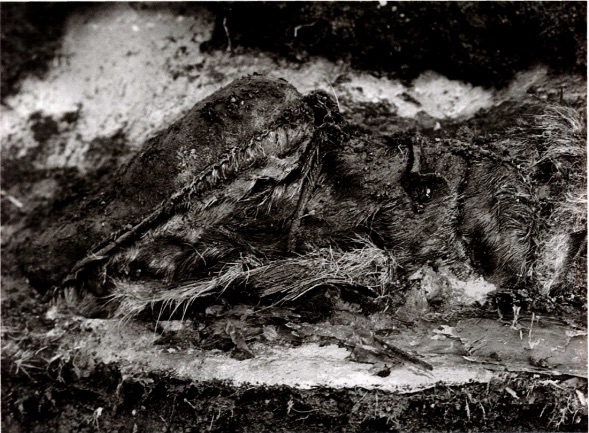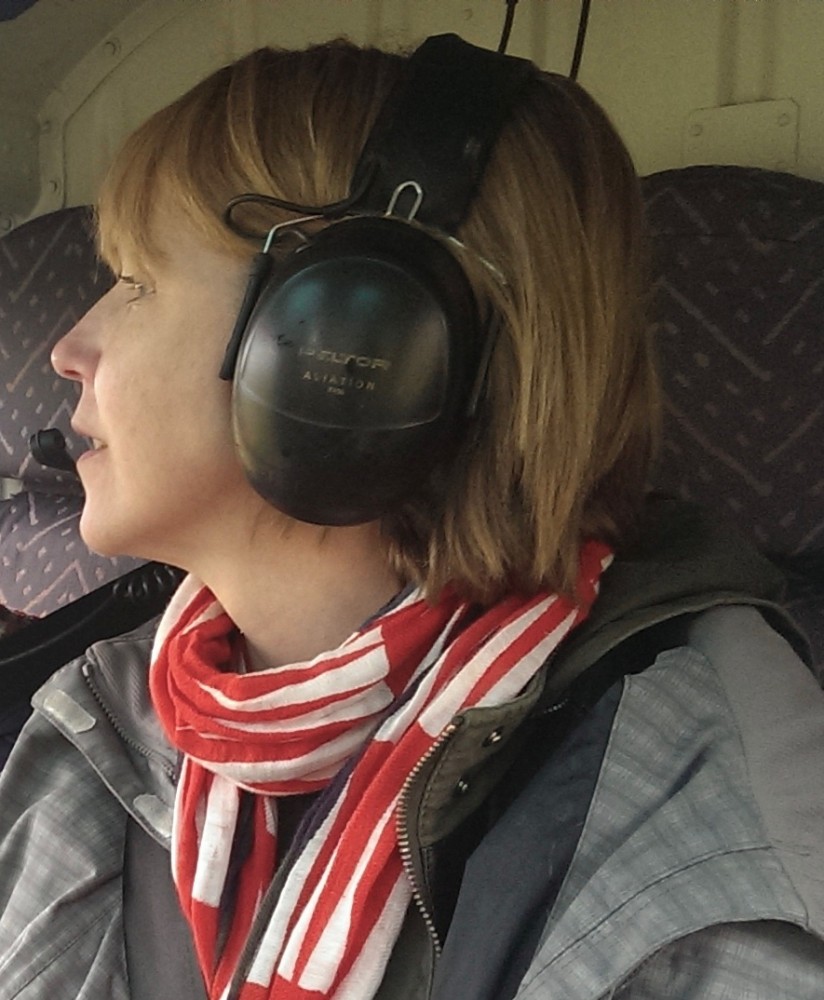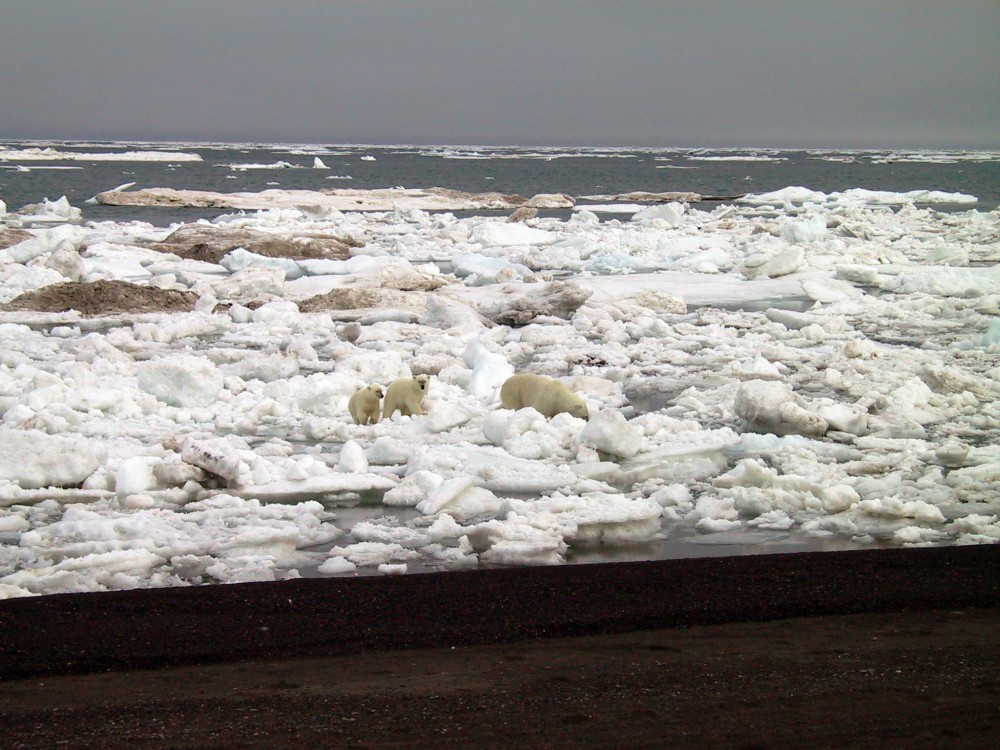The limb's owner had been buried face-down, indicating that he had once been a revered elder. Community members nicknamed their fallen ancestor ‘Uncle Foot' and promptly prepared to rebury his body. But they were not swift enough; shortly thereafter, a second storm tore through the region, eroding even more of the land and sweeping Uncle Foot out to sea.

Sixteen years later, locals relayed this story to Amanda Lynch, a climate modeler who was conducting research in the region. As she tells it, their lingering feelings of mourning were palpable.
"The loss of Uncle Foot was really important to the community in that they hadn't been able to save him," she explains. "And the reason they weren't able to was because of the storm."
Thanks to climate change, such Arctic hurricanes have become especially unpredictable in recent years. "The elders used to know when [the storms] were coming, but they didn't know anymore," she continues. "And they didn't want to lose another elder like that."
The theory
 Amanda Lynch, Professor of Earth, Environmental and Planetary Sciences and Director of IBES, launched her illustrious career, almost accidentally, as a highly technical and sought-out arctic climate modeler. But her focus shifted when she realized that her computations weren't accomplishing much on the ground.
Amanda Lynch, Professor of Earth, Environmental and Planetary Sciences and Director of IBES, launched her illustrious career, almost accidentally, as a highly technical and sought-out arctic climate modeler. But her focus shifted when she realized that her computations weren't accomplishing much on the ground.
She recalls one particular conversation with an Inupiat man in Alaska. "We were talking about climate change and how the ice was going to melt and all of this kind of stuff, and he said, ‘How is all this science you're doing… going to help me? I live here.' And that really brought me up short," she says. "I thought, I'm writing all of these papers, but what am I doing that's really making a difference in people's lives?"
That encounter spurred Lynch to begin collaborating with fellow professor Ron Brunner, a political scientist at the University of Colorado Boulder who studies policy science and theory. Together they developed a new model of adaptive governance for climate change adaptation, a policy framework that empowers vulnerable communities to develop flexible and realistic strategies that will remain effective in the face of an unpredictable climatic future.
"My work in adaptive governance is all about trying to make policy that's modest and redundant and resilient," she explains. "And if it's going to fail, it fails gracefully and has resources left over for another try. It's about making policy adaptive and iterative over time. And that kind of policy in a situation of high uncertainty is, I think, the right way to go."
The work
Today, Lynch works primarily in the north Atlantic region, which includes places like Greenland, Iceland, and northern Norway. Her research is guided specifically by the needs and concerns of local stakeholders, mostly in relation to one overarching question: What does the retreating ice mean to each of the groups confronting it?
This single question begets multiple answers.
"For the fishing communities in northern Norway and in Iceland, it's about the health of the cod and the cod fisheries, and the shrimp fisheries, and how they're trading off," explains Lynch. "For the Saami [in Norway], who are primarily reindeer people, what they're looking for is, how is this going to impact the terrestrial climate and the fodder for the reindeer? And the shipping companies and the oil rigs are worried about how quickly the ice is really going to retreat, and how dangerous it's going to be."

Lynch tackles these distinct perspectives one by one, interviewing representatives from each demographic to determine what their major concerns are in relation to climate change—and what, if any, plans they have in place to cope with these issues. She and her colleagues then identify alternatives that might help stakeholders accomplish their goals more effectively or efficiently.
These conversations also inform the research questions that Lynch targets when running climate simulations. In this way, her modeling skills often come in handy; however, these days, she tends to respect the models more for their explanatory value than for their predictive power. "What I use them for is to understand mechanism," she says. "Because if we have insight into how the system works, then we can have some sense of where it's headed—without necessarily being tied to the false precision of one projection over another, which have such profound uncertainties."
Ultimately, armed with an empirical understanding of local climatic processes, Lynch can apply various "adaptive" policies to her model in order to determine which is likely to be most comprehensive and resilient under future conditions.
As a former climate model designer and programmer, her approach is both exacting and systematic. "If there's anything that I could help quantitative scientists understand, it is that qualitative rigor is a thing," she says. "It's a real thing, and there are ways you can measure it."
The impact
This type of work, so fundamentally based in the service of others' goals and interests, is highly rewarding. But it does present certain ethical challenges. And although Lynch may not agree with the goals of certain stakeholders—native communities hunting whales for meat, for instance, or minerals companies seeking to excavate formerly ice-covered plains—she is a strict adherent to the principle of the common good.
As she explains, the common good is inherently case-specific and must be determined anew in each situation and for each population.
"You can't assume, walking in, that you know what the common good is," says Lynch. "And that's why I am very clear about, for example, being an honest broker in Greenland and never saying to them, 'I don't think you should mine toxic metals,' because it's not for me to say that's not in their common interest. It's for them to decide that."
Lynch's commitment to autonomy and empowerment positioned her well to take on the role of inaugural Director of IBES. As both its leader and one of its core faculty fellows, she believes that the Institute is uniquely equipped to promote the ideals of equity and human dignity.
"IBES is the expression of our commitment to the common good, collectively," she says. "I might be a little bit more explicit and theoretical about how and why I do that [kind of work], but you can see it in all of the faculty; we're all committed to the common good. And that's really what it's about. That's what we're building it for."
This commitment is likely to become even more imperative in the decades ahead. As climate change advances upon communities with the smallest voices, the fewest resources, and the least power, the consequences of our warming world will hit such vulnerable groups worst and first. And in Lynch's view, there can be no global benefit while a significant group of people remains in a state of suffering.
"That's why I never talk about win-win," she says. "Everybody might lose a little, but nobody loses everything. And everybody gets to live with dignity and hope."